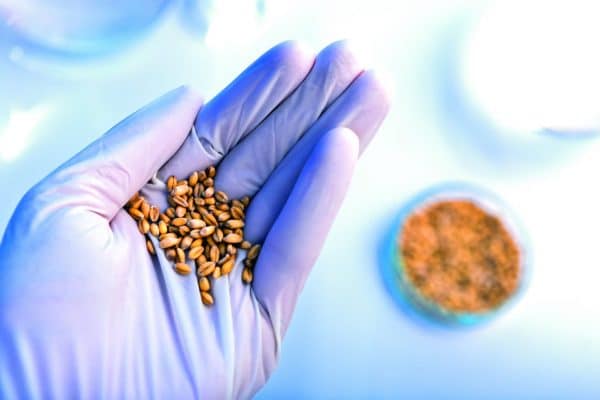What’s the best thing you can do for your crops? Is it making sure they get enough water, sunlight and love? What about having the best herbicides and pesticides to protect them from pests? The best seed treatment? Precision seeding equipment?
Well, there’s something more important than that: testing your seed.
About three years ago, Alberta Seed Processors (ASP) began a program called Seed Smart to promote and educate about the importance of seed health and testing your seed. Since then, the goal has remained the same: to get the word out that seed testing is “smart.”
“Seed Smart has only had about three seasons,” says Monica Klaas, general manager of ASP. “The program hasn’t changed much and the Co-op seed and grain processing network throughout Alberta/ BC Peace region have been the catalysts of the program to date. As our program gains momentum, we’re making plans to involve other parts of the crop sector value chain.”
But why should growers care so much about their seed health? Why should they get their seed tested?
“Everything a farmer does on the farm is to unlock the potential of the seed,” Klaas says. “The message of the Seed Smart program is for farmers to know the quality parameters of the seed they plant. If a farmer is using pedigreed seed, asking for the seed analysis from the seed retailer will assist that grower in planning for success. If a grower is using farm saved seed, getting a full seed test from an accredited laboratory will determine seed health parameters.”
Seed Smart recommends testing for germination and Fusarium gramineareum, as a bare minimum. Other tests such as fungal scans, vigour testing, and 1000 Kernel weight are other parameters that are critical indicators of seed health
Klaas says that particularly in this season, growers will want to make seed testing their first priority, as challenging harvest conditions will play a role in seed health.
Submitting a representative sample to the seed lab is of ultimate importance. With a later than normal harvest, farmers are reminded to take a sample from each truck load. Seed Smart has developed a sampling document to help guide farmers to use proper sampling techniques. The idea is to get a snapshot of seed quality of the whole seed lot, (not just what a farmer can access from a bin door).
Seed Smart’s next focus is marketing towards trade shows. Klaas says that they’ve been working on materials that will be available at more trade shows, and that they’re amping up more materials to be put in seed processing facilities.
In addition to Seed Smart marketing materials, there are now Seed Smart scholarships . Currently, Seed Smart awards two scholarships to encourage the next generation of growers to know the quality of the seed they’re planting.
The scholarship targets second to fourth year students enrolled in an agriculture-related field at universities across Canada, with given preference to students at an institution in Alberta. This year, Seed Smart awarded scholarships to Cole Huppertz, a 20-year-old from Westlock, Alberta, studying at Lakeland college, and Kyle Wheeler, a 20-year-old from Strathmore, Alberta, and a student at the University of Alberta.
“One of the things we recognize is that if a grower has been farming for 60 years or so and has never tested their seed, chances are that’s not the demographic that wants to send in seed samples,” Klaas says. “We know that we need to start working and encouraging the next generation to be cognizant about seed health and make it their first step.”
Currently, Seed Smart is staying focused on Alberta, but Klaas hopes that some of their marketing materials can be amended to other locations.
“The message is the same no matter where you farm,” Klaas says.
“We talk a lot in agriculture about sustainability and integrated pest management,” Klaas says. “Arguably, having a seed analysis fits into both platforms — you’re trying to predict an outcome. It’s difficult to try and predict something if you don’t know where you’re starting. Seed analysis often gets lost around the other parameters of crop production, but the Seed Smart program believes it should be the starting point.”
Where on the Web:
Visit the Alberta Seed Processors website www.seedprocessors.ca/seed-smart for resources and tools to help you be Seed Smart.





